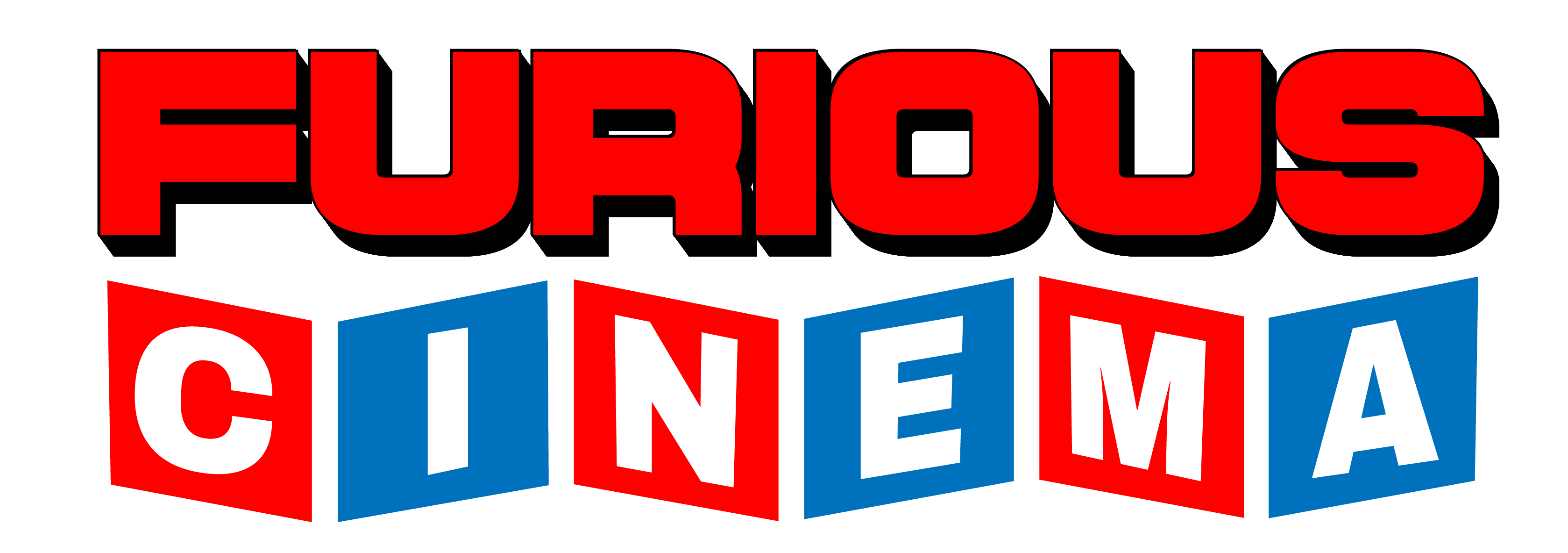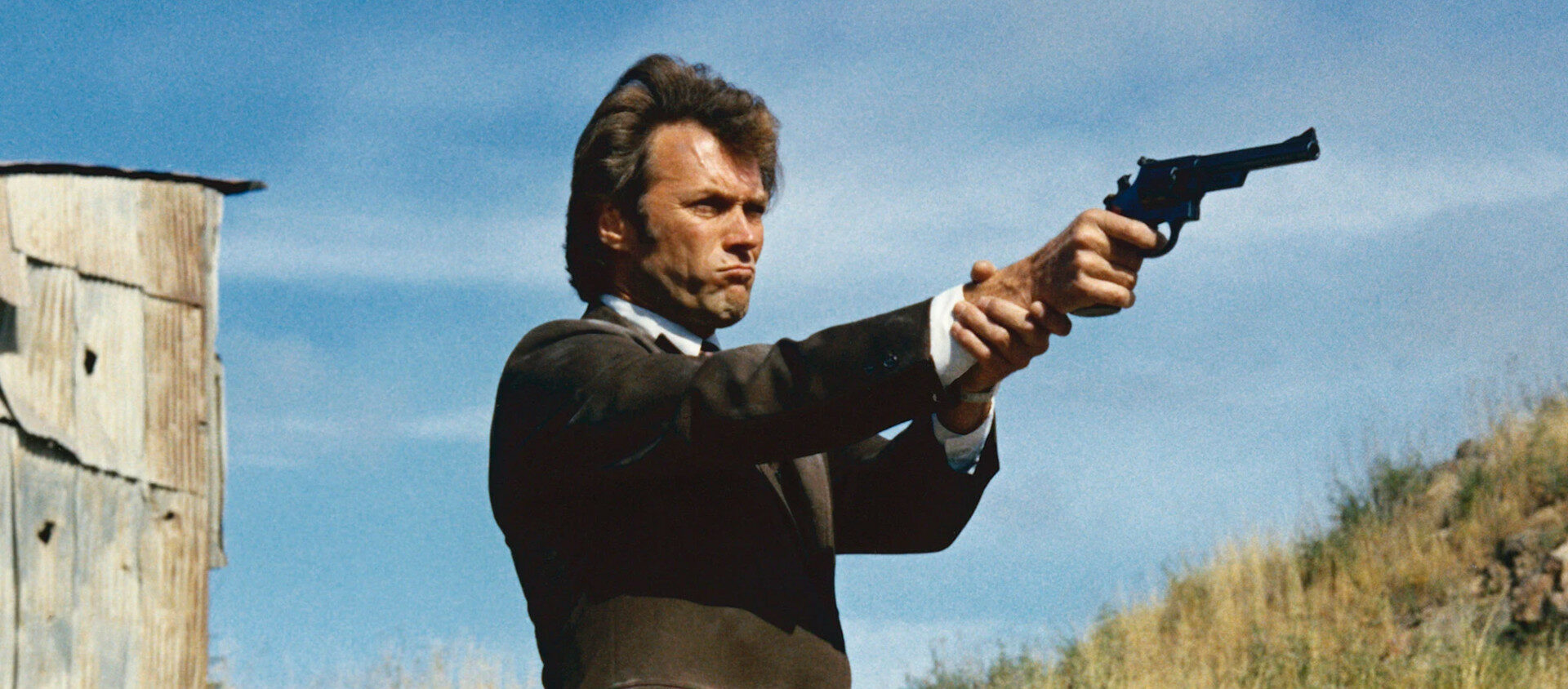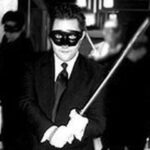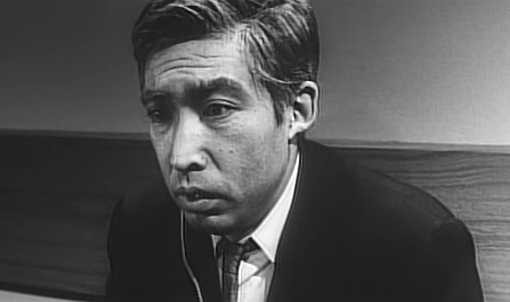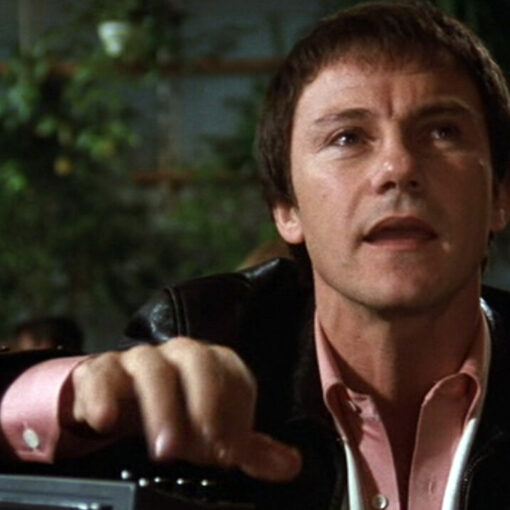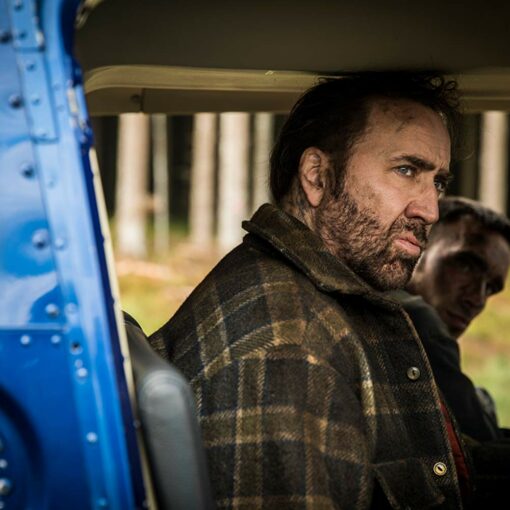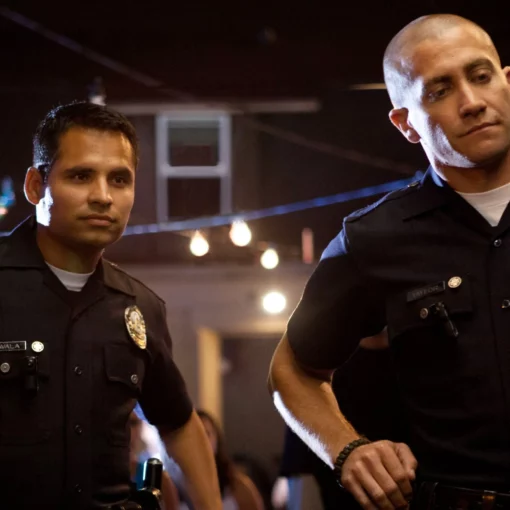We couldn’t do our Don Siegel retrospective without reviewing the film that features one of the international icons of popular cinema…
Clint Eastwood plays “Dirty” Harry Callahan a rebellious San Francisco police homicide inspector who is investigating the killing of a woman by a serial killer called Scorpio (Andrew Robinson) a character who was inspired by the real Zodiac killer that was from the same area. Harry’s wreckless methods of law enforcement have garnered him a reputation as being quite a loose cannon. We see an example of this in his introductory scenes which have him stopping a robbery in progress by executing the criminals with his gun of choice: a .44 Magnum. His favorite catchphrase “Do ya feel lucky?” (written by an uncredited John Milius) which has since become famous is also first spoken here. After this destructive confrontation, Harry is given a new partner, Chico Gonzalez (Reni Santoni) a young rookie who doesn’t quite know that he’s in for one helluva risk since Harry’s past partners keep being hurt or killed.
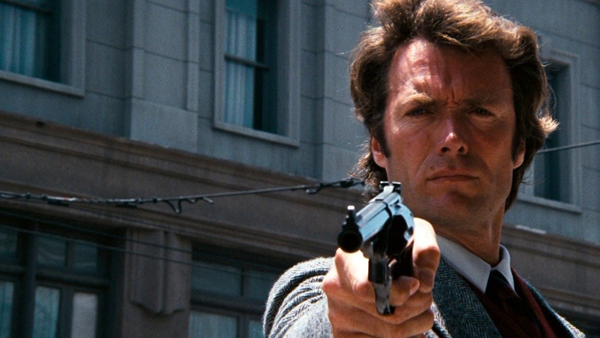
Meanwhile, Scorpio’s 2nd victim is a young boy and the police get word that he plans to kill a Catholic priest next. Harry and Chico stakeout the place they think he may turn up and are in fact correct when they spot Scorpio on a rooftop. A wild shootout occurs, a police officer is killed and Scorpio is able to escape. This insult by the police drives him to do something even more sickening: he kidnaps, rapes and buries a young woman alive. His demands in exchange for her location is a large sum of money to be delivered to him by the police officer who tried to take him down. As a precaution to keep the cops unsure of his pickup spot, Scorpio has Callahan run all over town and calls him from different payphones. When Harry finally arrives at a large stone cross statue, Scorpio sneaks up and beats him until he’s almost unconscious. Luckily, Harry is able to stab him in the leg with a knife had had hidden on him.
Due to Scorpio seeking medical attention at a nearby clinic, Harry discovers his residence: the city football stadium janitor’s quarters. Harry decides to break in which causes Scorpio to limp off and a footchase ensues. Harry shoots Scorpio in the leg on the football field then sadistically steps on the wound to torture him into giving up the whereabouts of the kidnapped girl. This show of unlawful force causes Scorpio to get off on the charges. It also turns out the girl was in fact dead all along.
After being reprimanded by the stuffy Mayor (John Vernon) and his jerky superiors, Harry follows the killer on his own time, waiting for him to slip up, which he knows will happen sooner or later. Scorpio, who is sicker than most, even pays someone to beat him to a pulp just so he can put the blame on Callahan a second time to get some distance from him. When Scorpio later kidnaps a busload of children and demands money once again, Harry decides to end the reign of terror once and for all, law or no law.
What Dirty Harry gave movie audiences in the early 70s was an exciting, modern anti-hero that fought the hypocritical system where the rights of the criminals were more important than their victims. Harry actually had a lot in common with Eastwood’s early role as The Man With No Name as well as the kind of film noir era detectives who had no problems being as ruthless as the criminals they were pursuing. This ‘eye for an eye’ perspective had a tremendous amount of appeal for both the younger liberal and older conservative viewers.The film also ushered in the next generation of American crime-action cinema that would continue to break the rules in similar ways.
The score by Composer Lalo Schifrin who had previously done the music for the 1968 crime classic Bullitt, cranked up the funk and brought an even more urban edge to the movie accented by eerie thriller aspects. As can be heard in Scorpio’s Theme HERE.
Clint Eastwood would go on to act in several successful sequels to the original: Magnum Force (1973), The Enforcer (1976), Sudden Impact (1983) and the final entry in the series: The Dead Pool (1988).
Dirty Harry is one of our favorites and a true touchstone of furious cinema. We highly recommend it!
FURIOUS FILM TRIVIA
– When Don Siegel was hired as director, he was considering Audie Murphy for the role of Scorpio. Siegel thought it would be a nice irony to have a genuine war hero and heroic screen icon known for playing clean-cut characters playing a psychopathic killer. Siegel offered Murphy the role, but Murphy died in a plane crash on 28 May 1971 prior to making his final decision.
– Robert Mitchum, John Wayne, Steve McQueen and Burt Lancaster all claimed to have turned the film down.
– ‘Dirty Harry’ is the slang term for a photographer (either shooting paparazzi and/or modeling shoots) with a single lens reflex (SLR) camera. The slang term for an SLR camera is a .44 Magnum.
– Clint Eastwood agreed to star in the film only on the proviso that Don Siegel direct. Siegel was under contract to Universal at the time, and Eastwood personally went to the studio heads to ask them to ‘loan’ Siegel to Warner. Eastwood has always maintained in interviews that the reason he took the role was because he felt the issue of victims’ rights was being ignored in the political arena at the time, and he thought the film could be a good way to bring it more to the fore (which it did).
– One of the reasons why Don Siegel cast Andrew Robinson as Scorpio was because he wanted someone “with a face like a choirboy”.
– Uncredited screenwriter John Milius wrote his draft of the film inspired by Akira Kurosawa’s studies in lone-gun detectives, while director Don Siegel tackled the material from the viewpoint of bigotry.
– Before each of Harry’s 3 combative encounters with Scorpio, there is a cross and or a reference to Christ: 1.) At the rooftop stakeout, the “Jesus Saves” neon sign. 2.) At the park ransom location, the giant, cement cross. 3.) And at 1:35:14, at the pivotal moment when Harry is spotted by his nemesis from the school bus, a cross extending up from the streetlight. Scorpio even exclaims, “Jeeeesssus!”
– When Clint Eastwood approached Don Siegel to offer him the directing job, Eastwood gave Siegel four drafts of the script, one of which was written by Terrence Malick. In Malick’s script, he had altered Scorpio from being a mindless psychopath killing only because he likes it, to being a vigilante who killed wealthy criminals who had escaped justice. Siegel didn’t like Malick’s script, but Eastwood did, and Malick’s ideas formed the basis for the sequel, Magnum Force.
– Andrew Robinson created a backstory for Scorpio which involved him being drafted into the Vietnam War, and seeing unspeakable horrors. When he returned home to the United States, he found himself a figure of hate, and his war experiences, combined with the people’s treatment of soldiers, caused him to go insane.
– Scorpio wears a belt with a peace symbol buckle throughout the film. According to director Don Siegel, “It reminds us that no matter how vicious a person is, when he looks in the mirror he is still blind to what he truly is”.
– In the bank robbery scene, the movie theater across the street lists Play Misty For Me (1971), another Eastwood film, on it’s marquee.
Director Cameo Don Siegel: The pedestrian walking past Harry’s car when he and Chico return to police headquarters.
